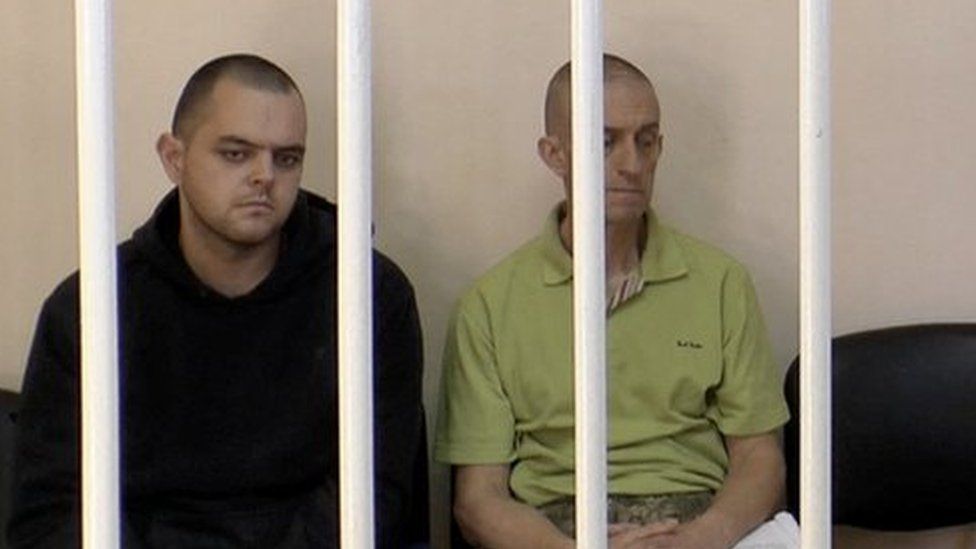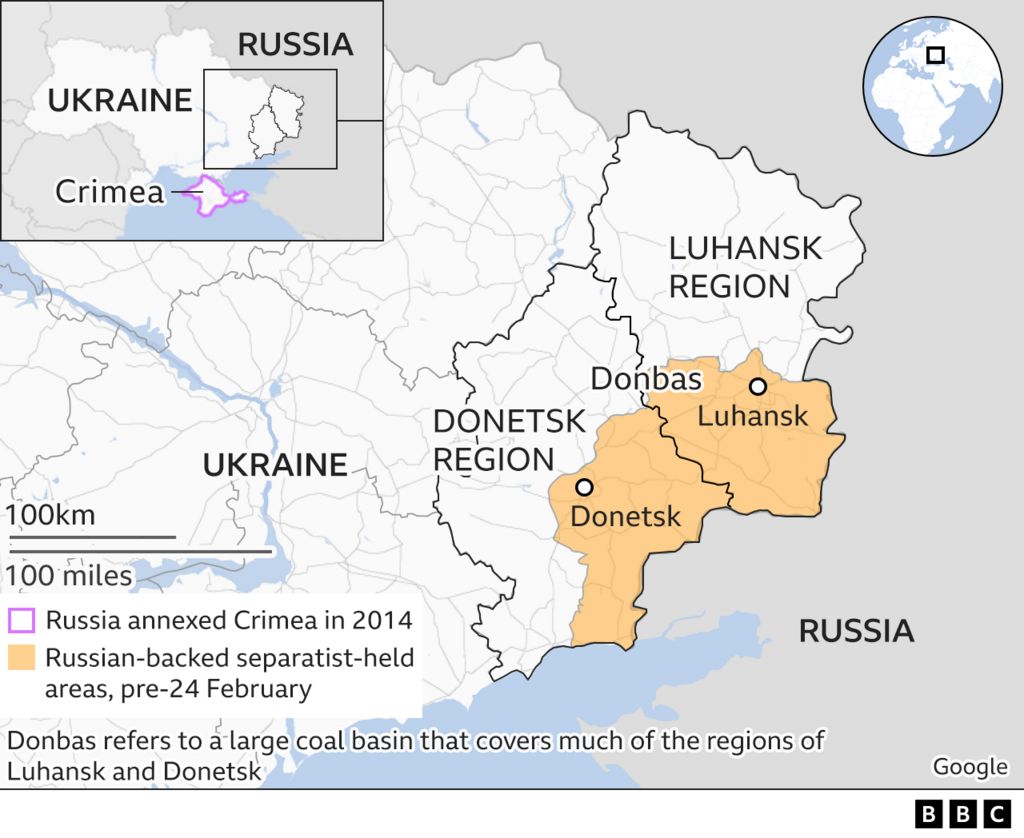Aiden Aslin and Shaun Pinner were sentenced to death by a Russian proxy court in Ukraine on Thursday.
 Image source, Reuters
Image source, ReutersForeign Secretary Liz Truss will speak with her Ukrainian counterpart about two Britons handed death sentences by a Russian proxy court in eastern Ukraine.
Aiden Aslin and Shaun Pinner were captured fighting with the Ukrainian army, but were tried as mercenaries.
Both the British government and Ukraine’s top prosecutor have said the sentences breach the Geneva Convention.
Ms Truss is expected to discuss the situation with Ukraine’s Foreign Minister Dmytro Kuleba by phone later.
Mr Aslin, 28, from Newark, in Nottinghamshire, and Mr Pinner, 48, from Bedfordshire, both of whom were already living in Ukraine at the time of the Russian invasion, were captured in April while defending the besieged city of Mariupol.
They were sentenced alongside a third man, Moroccan national Brahim Saaudun, by a Russian proxy court in the so-called Donetsk People’s Republic, a pro-Russian breakaway region in eastern Ukraine.
All three men were charged with being mercenaries, the violent seizure of power, and undergoing training to carry out terrorist activities, according to Russia state news agency RIA Novosti.
The men’s lawyer said they all wished to appeal against the sentence, Russia’s Tass news agency reported.
Downing Street said the government was “deeply concerned” by the sentences given to Mr Aslin and Mr Pinner, adding that prisoners of war are granted “combatant immunity” by the Geneva Convention and should not be “exploited for political purposes”.
Ms Truss said the outcome of the trial was a “sham judgement with absolutely no legitimacy” and that the government was doing “everything we can” to support the men’s families.
Ukraine’s Foreign Ministry described the “so-called trial” of all three men as “miserable” and said the Ukrainian government would “continue to make every effort to release all defenders of Ukraine”.
“Such public trials place the interests of propaganda above law and morality, and undermine the exchange mechanisms of war prisoners,” a spokesperson told the BBC.

Image source, .
In a statement, Ukrainian Prosecutor General Irina Venediktova said that, as prisoners of war, the three men “cannot be prosecuted for taking a direct part in hostilities” and that “their detention should only aim to prevent their further participation in the conflict”.
“[The sentencing] is nothing else but a violation and mockery of international humanitarian law and international human rights law obligations of Russia as an occupying power via proxies,” she said.
“Russia once again displays its alienation from the rules-based system and a blatant disregard of the very core of the rule of law.
“Ukraine has already initiated pre-trial investigation into this matter and will take all appropriate steps to ensure that everyone that was involved in this illegal action is held responsible for their actions.”
Speaking to BBC Two’s Newsnight, American former soldier Brennan Phillips, who previously worked with Mr Aslin in Ukraine, discussed how he thought the outcome of the trial would be received by those still fighting Russian forces in Ukraine.
“Whatever effect they thought they would have… I don’t think it’s going to be well-received,” he said.
Mr Phillips said he believed the death sentence handed to the men was a deliberate “provocation” by Russia and that he was hopeful it would not ultimately be carried out.